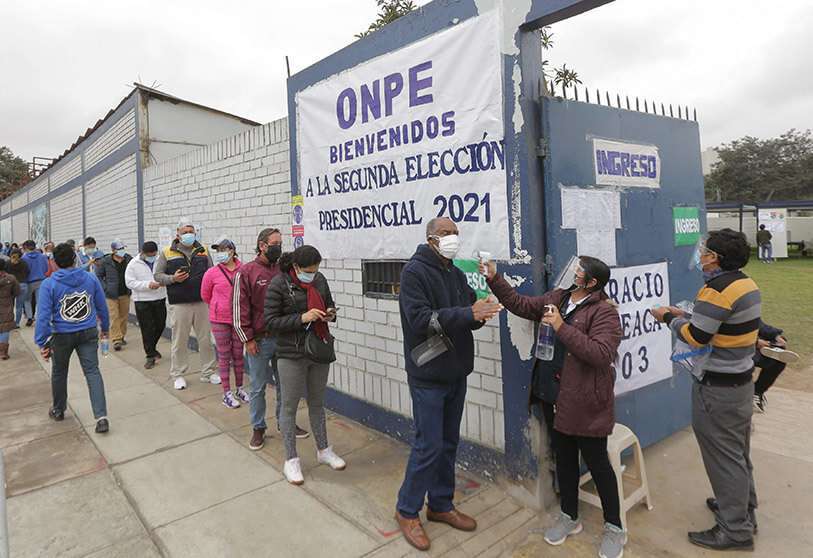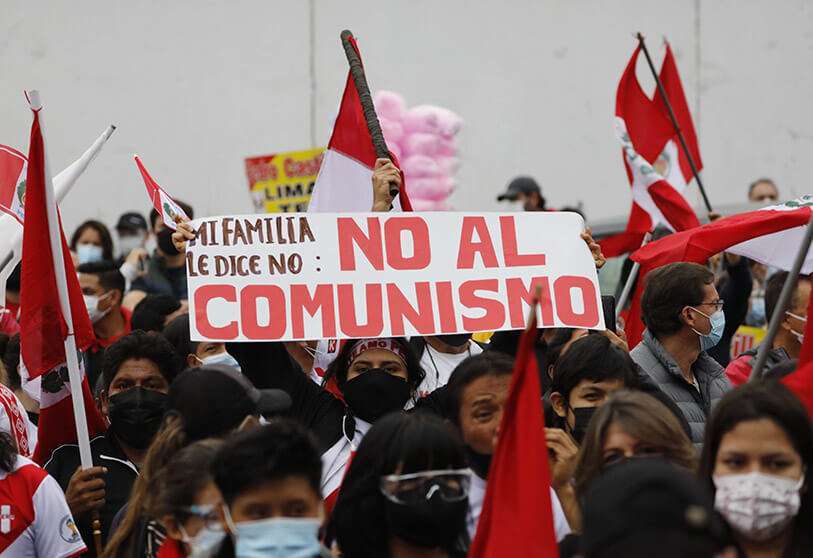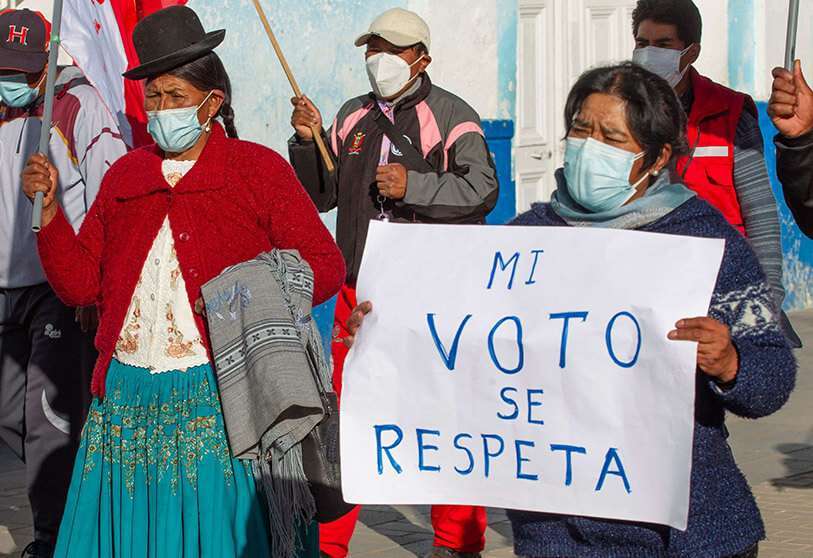Peru's elections: official results could take another two weeks to be announced

The Fuerza Popular candidate for the presidency of Peru, Keiko Fujimori, insists that there is "fraud" in the second round of Peru's presidential elections, in which she faces Peru Libre's candidate, Pedro Castillo.
"There is fraud at the table, manipulation at the table", "there are very serious facts in this last stage", said Fujimori in a meeting with the foreign press, according to El Comercio.
The results of the National Office of Electoral Processes (ONPE) have reached 100% of the vote count, but 99.93% of the votes have been counted. The slow vote count keeps the left-wing candidate, Pedro Castillo, with a slight lead, with 50.127%, against the right-wing Keiko Fujimori, who holds 49.873%.
Keiko Fujimori's request, as well as the accusations of the Peru Libre party, are being dealt with by the National Jury of Elections (JNE), which will not allow a new president to be proclaimed until it has reviewed the thousands of contested votes, which is why the process could take between one and two weeks, according to specialists.

The Fuerza Popular party asked the electoral tribunal to annul the votes collected in the rural villages where Fujimori's party did not receive a single vote. "It is statistically impossible," said party spokesman Miguel Torres.
Nine communities threatened to go to the capital, Lima, if their votes are not respected. Several of these villages are in the Amazon region, where the Autonomous Territorial Government of the Wampís Nation has expressed its refusal of Fuerza Popular's request. "The polling stations were legally and effectively installed in the communities of the Wampís Nation, where the Wampís cast their votes freely and voluntarily, and without any kind of coercion, in exercise of their right to political participation at the ballot box," they stated in a communiqué.
During a telephone conference between peasants and indigenous people in Peru, the president of the Agrarian Confederation, Víctor Maita, described Fuerza Popular's accusations as "racist in content" and expressed indigenous discontent with the accusations. "They continue to treat us as second-class people in the 21st century," he said, threatening to go to the capital to demonstrate if their rights are not respected.

The delay in the election results has contributed to increasing the discontent of the Peruvian population, which has taken to the streets on numerous occasions in the form of street rallies, electoral attacks and hate and discrimination campaigns on social networks. With these demonstrations they are demanding respect for the popular vote, demanding that one of the candidates be declared the new president of the Republic as soon as possible.
In response to the demonstrations, the Minister of the Interior, José Elice, announced a ban on social demonstrations. "Everyone is guaranteed the right to free expression, but mobilisations or acts that affect or interrupt the vaccination process, which is essential at this time and guarantees the enjoyment of the right to health, will not be allowed. The COVID is our common enemy," he said on his official Twitter account.

The UN High Commissioner for Human Rights, Michelle Bachelet, has expressed her concern about the current situation in Peru in a statement: "I am concerned to see how what should be a celebration of democracy is becoming a focus of division, which is creating a growing fracture in Peruvian society, with negative implications for human rights".
Bachelet expressed her unease at the harassment of public authorities such as the president of the National Jury of Electors (JNE), Jorge Salas, and the head of the Office of Electoral Processes, Piero Corvetto, and urged Peruvian society to respect the results of the electoral authorities, "electoral institutions and the decisions they take must be respected and accepted. If the rules of democracy are not accepted before, during and after the elections, social cohesion could dangerously crack," he said.

The deadline for Peruvians to establish their new Congress and the country's president will be 28 July, the day on which Peru commemorates the bicentenary of its independence.
Latin America Coordinator: José Antonio Sierra.










